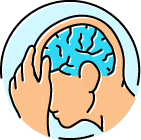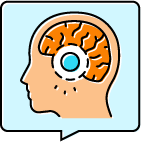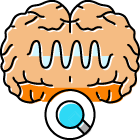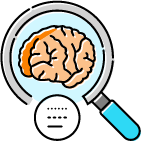Brain Tumors: Challenges and Support
Brain tumors, including the aggressive glioblastoma, pose significant challenges in treatment and prognosis. Despite being relatively rare, they affect vital functions and have a low survival rate, with glioblastoma's five-year survival being less than 10%. Treatment complexities arise from the blood-brain barrier and the brain's intricate anatomy, making early detection crucial. Organizations like the American Cancer Society and the National Brain Tumor Society play key roles in funding research and raising awareness to improve outcomes and support affected individuals.
Early Symptoms of Brain Cancer

Seizures
One of the early warning signs of brain tumors is seizures. These seizures can manifest as convulsions, loss of consciousness, or loss of bladder control. Notably, if seizures begin in adulthood without a prior history of epilepsy, it could indicate the presence of a brain tumor.

Headaches
Persistent and worsening headaches are experienced by more than half of brain tumor patients. These headaches can be intense, often exacerbated by coughing, changing posture, or straining. They may become more frequent and severe as the tumor grows.

Nausea & Vomiting
Increased pressure within the skull caused by a brain tumor can lead to episodes of nausea and vomiting, particularly accompanying headaches.

Behavioral and Cognitive Changes
Changes in behavior or personality can be distressing symptoms of a brain tumor, especially if they affect communication, thinking, or memory. Psychotic episodes or alterations in personality may also occur.

Balance & Motor Issues
Brain tumors can disrupt the body's sense of balance, resulting in dizziness or difficulty maintaining equilibrium. Weakness, paralysis, lack of coordination, or difficulty walking can indicate the presence of a brain tumor, particularly if these symptoms affect only one side of the body.

Abnormal Odors
Some individuals with brain tumors report experiencing olfactory hallucinations, such as smelling strange burning odors, despite there being no identifiable source; recognizing such atypical symptoms is important in early detection and diagnosis.

Vision & Hearing Difficulties
Brain tumors can impact vision or hearing, leading to blurred vision, double vision, hearing disturbances, or even partial or complete loss of vision or hearing.
Consider Donating To Help Our Cause
Your donations help Cancer Patients and research for Brain Cancer

